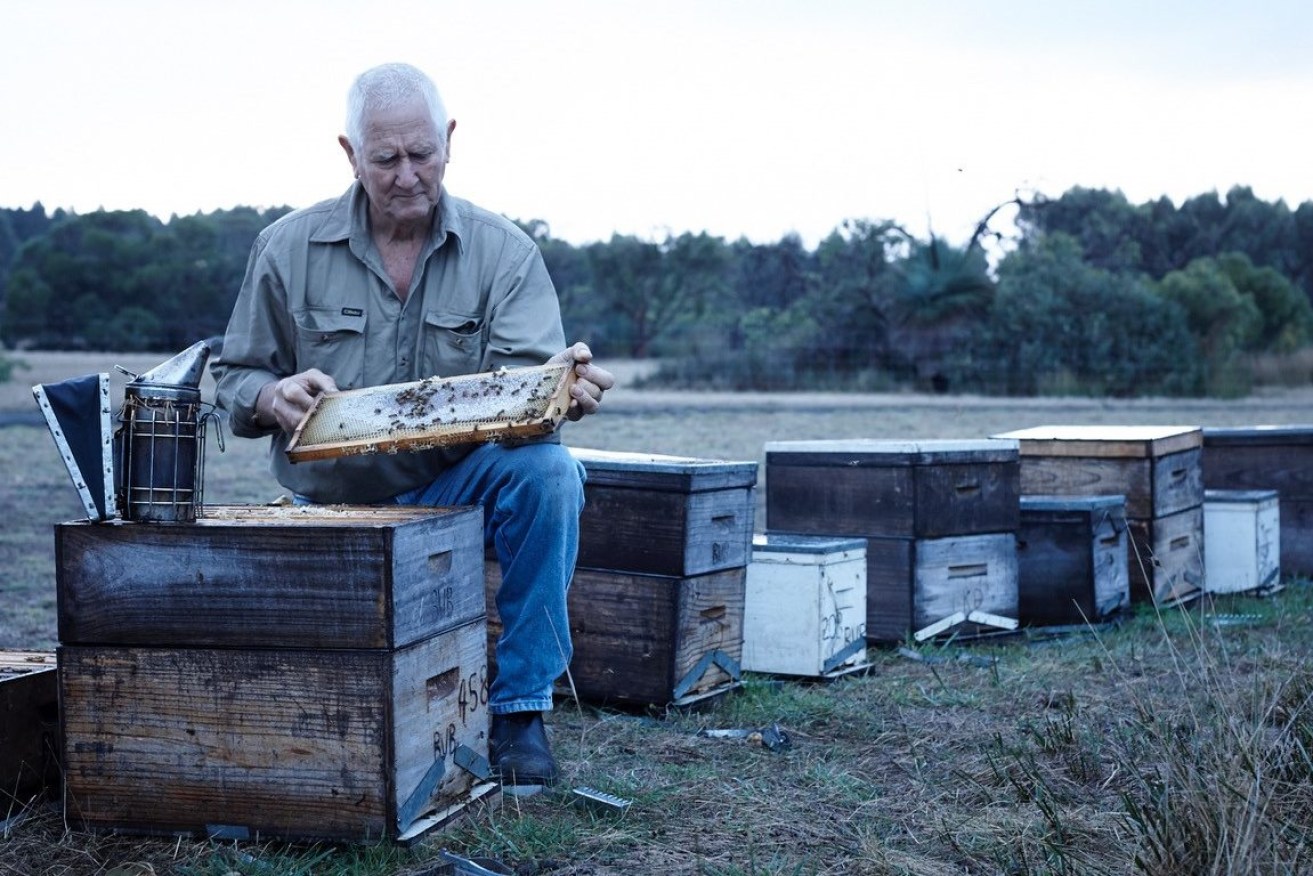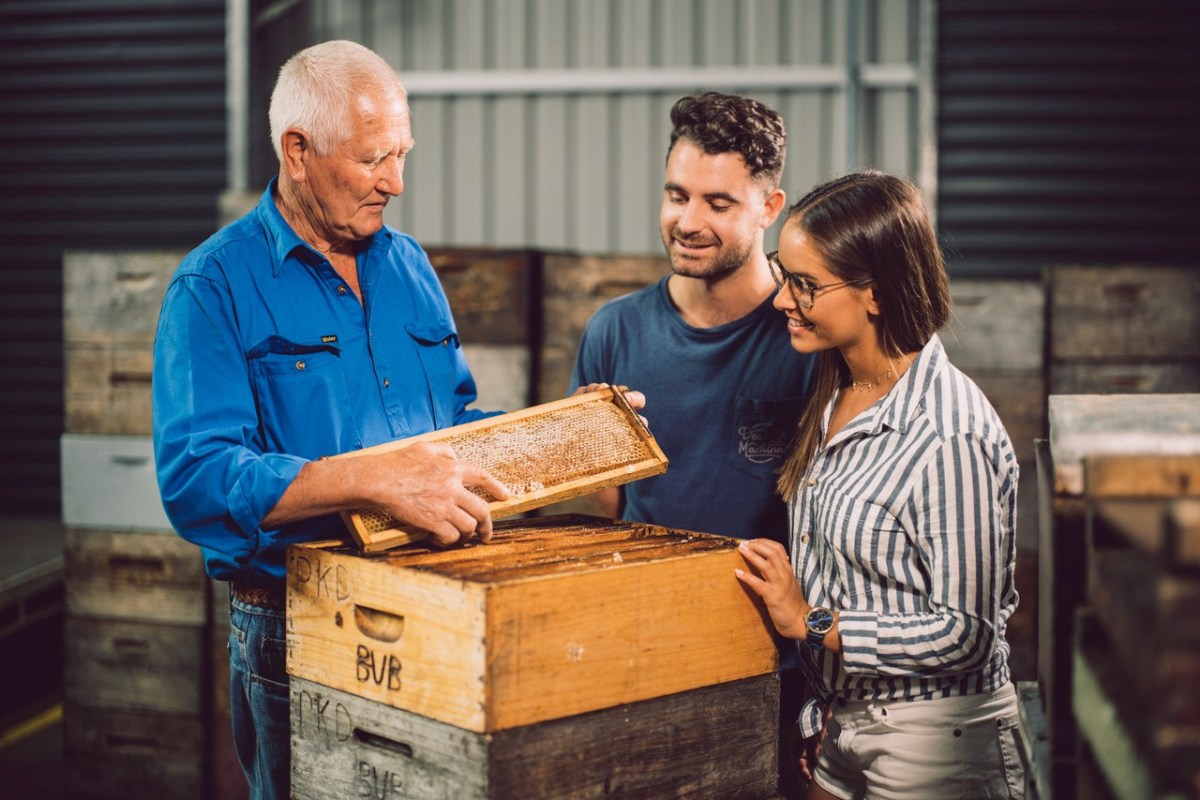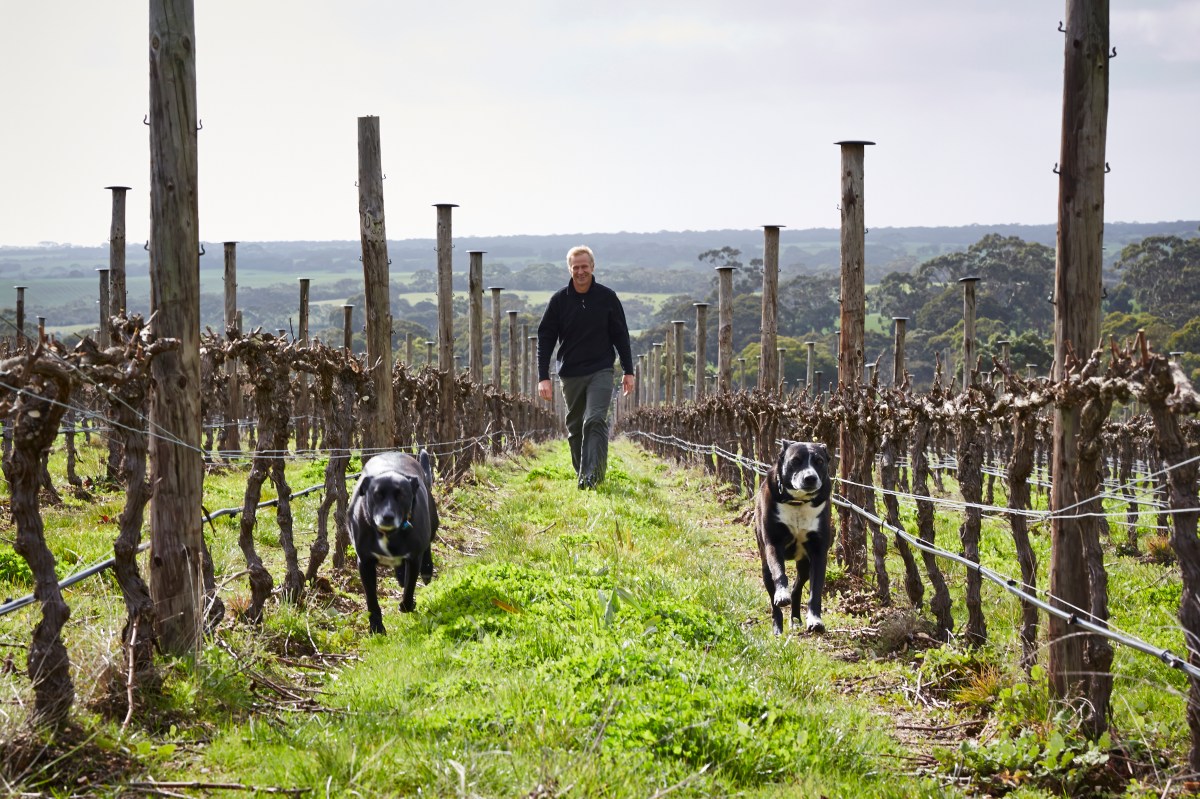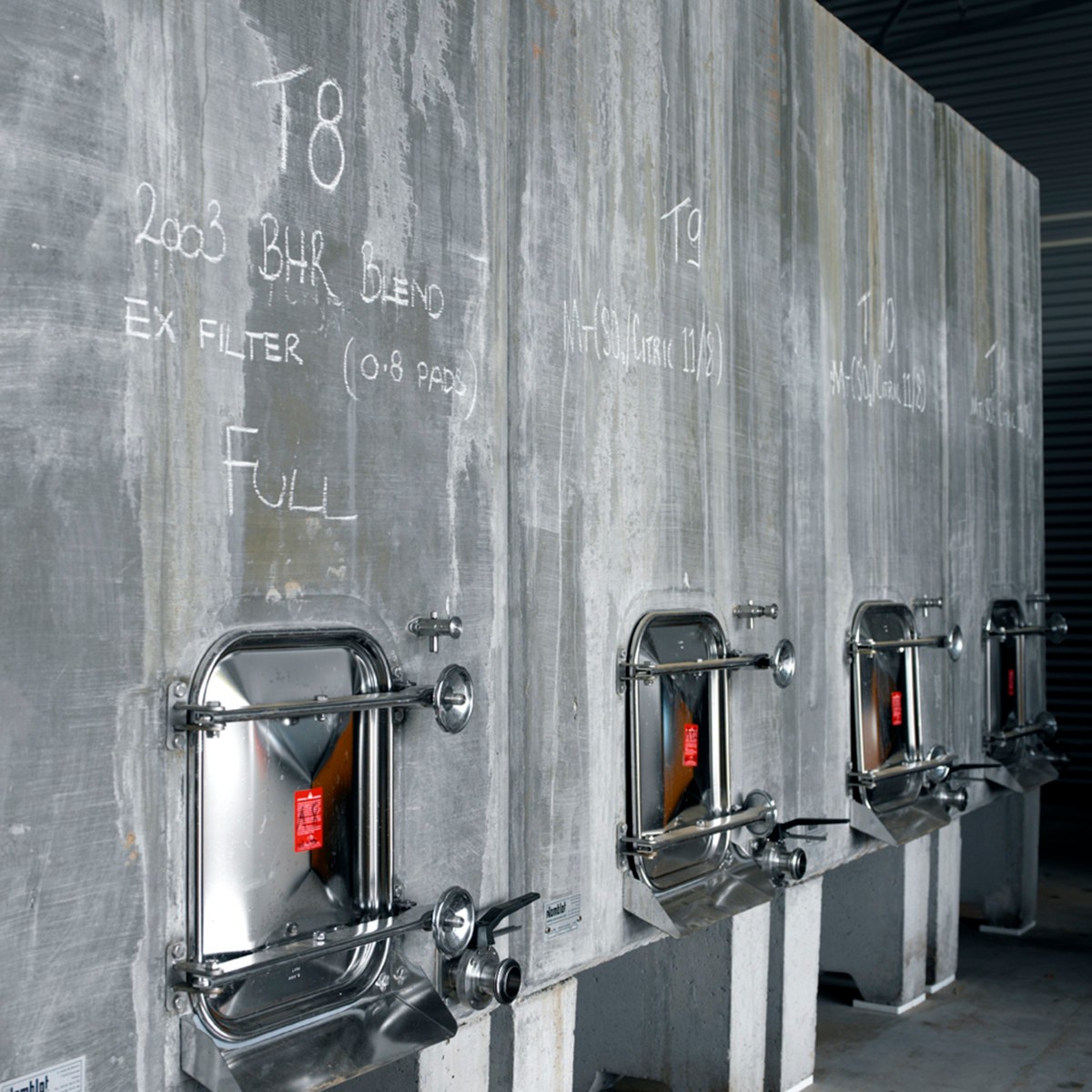How Kangaroo Island evolved into a gourmet’s delight
Faced with an ageing population, seasonal economy and the challenges of living remotely, Kangaroo Islanders have executed a skilful about-face and established their home as a year-round tourist and foodie destination like no other.

Peter Davis
Under the ‘Authentic Kangaroo Island’ brand that is synonymous with quality and purity, and an ‘open all year’ campaign to counterbalance the seasonality of the island’s economy, KI businesses are deservedly seeing the fruits of their collective labour.
Two of the many proud island producers, Peter Davis from Island Beehive and Yale Norris of The Islander Estate Vineyards, have offered some insight into KI’s evolution and how they see the island’s unique brand developing into the future.
Island Beehive

Peter Davis, a born and raised islander, has grown Island Beehive over the past 20 years into one of the biggest organic honey producers in Australia, employing 14 people and other seasonal workers.
What significant changes have you noticed over that time?
When I started this business, honey was just a commodity we sold to processers in Adelaide or Melbourne – now Kangaroo Island Ligurian honey is its own brand and in very high demand.
If you concentrate and do all you can, the world is your oyster.
How has your business responded to those changes?
We make sure we do not overcommit as there are seasonal fluctuations, which affect production, but we are concentrating on increased production. We have increased our focus to sell to visitors coming to Kangaroo Island.
Upgrading our accounting and point of sale technology has enabled us to monitor all steps from production to sales.
What do you believe makes KI produce unique?
The name Kangaroo Island is a perfect example of what is special here, the wilderness, animals and flora that make us unique. For honey, the story of the Ligurian bee and the history behind it.
What barriers do you face in doing business from KI? What are the advantages?
Meeting staffing requirements in a seasonal business. Freight costs and supply chain limitations have to be managed and included in pricing of products.
There is a well-defined boundary and restrictions that stop the import of bees or honey to the island. It is a luxury destination so people come and are prepared to spend more than they would elsewhere.
How do you think KI is perceived in the Australian food market?
It is an up-and-coming food and wine destination, known as a place that provides quality over quantity.
How do you feel about the future of the produce industry on KI? What opportunities do you see for the island?
Tourism is one of the biggest industries on the island and with tourism comes opportunities for food and wine businesses. You can’t have tourism without food and wine. There is opportunity for a wider range of produce, such as locally grown fruit and vegetables.
I see an opportunity for more quality food providers/restaurants with very good customer service, heroing local produce, especially over the peak season. There is also a need for restaurants to cater for the visitors who like to dine later in the evening.
We need to think about taking actions that will save KI from relying only on its ageing population. Young people moving away means loss of income streams, and loss of services.
The Islander Estate Vineyards
Yale Norris teamed up with Jacques Lurton at The Islander Estate Vineyards soon after moving from the United States to Kangaroo Island in 2011. Having got to know KI through their business Aussie Adventures, he and his wife Maren decided to sell up and move to the island to raise their family. Yale has helped grow The Islander Estate Vineyards both domestically and internationally.

What are the most significant changes you’ve noticed in the 19 years since you discovered Kangaroo Island?
The growth in tourism and specifically, tourism focused on regional food and wine. People are very interested in connecting with local producers and understanding how the products they buy are made and what goes into bringing them to market.
How has your business responded to those changes?
We opened a new Tasting Room in Cygnet River to showcase our KI wines. We are able to speak with our customers face to face. It’s great to get to know them and talk about why we do what we do and what makes it so special for us. You can’t really express your passion about something through a back label. The personal contact has really helped build a loyal group of customers. It has also led to increased revenue per sale and more repeat orders.
What do you think makes KI produce unique?
Our remoteness is what makes us unique and special. From a growing perspective, we are quite similar to other cool climate regions in Australia. But because we don’t have immediate access to reliable power, spare parts, a skilled labour pool, etc, we have to adapt and be creative when approaching problems. As an example, with no access to three-phase electric power, we have installed mainly concrete fermenters in the winery. The thick walls on these vessels help maintain temperatures at the end of vintage, saving us large amounts of diesel that would normally be required to provide the power for temperature control. Not only do these tanks provide cost savings, they influence our winemaking techniques, which helps us produce wines that are quite European in style and unique to us.

How do you think KI produce (wine, in particular) is perceived in the Australian food market?
KI is a very young wine appellation. As such, it is not well known for wine. The island is perceived as clean and green, which is certainly an advantage, especially for food producers. But we work really hard to educate people about why it is great for viticulture.
We are really close geographically to McLaren Vale and many people believe the wines should be quite similar. However, our climate is significantly cooler than McLaren Vale and as such our wines are very different in style – our wines tend to be quite delicate and elegant, rather than robust and more fruit-driven.
Thankfully the wine media has helped with articles about our wines and our region and slowly we are educating the wine-drinking public about our great region.
What barriers, if any, do you face in doing business from KI? What are the advantages?
Our biggest barrier is low-cost accessibility to resources – mainly spare parts, service and equipment. This is mainly due to the limited transport options we have for freight. This adds upwards of 20% to our COGS compared to a mainland winery.
That said we have many advantages being on KI. Mainly the weather. When it’s 40C on the mainland, we are usually 10C cooler. This puts less stress on our fruit and in turn less stress on our resources, including employees, especially management! But the biggest advantage is that we get to live in an amazing environment. We are surrounded by stunning landscapes, heaps of wildlife and miles of unspoilt beaches to enjoy without crowds of people fighting over a place to put a towel down.
How do you feel about the future of the food & wine industry on KI? What opportunities do you see?
I think the future is bright for the KI food and wine Industry. We now have four great cellar doors on KI, a brewery, a gin distillery and several new restaurants all showcasing the best of KI. We are exploring the opportunity for a new Wine, Spirits & Food Trail in the Cygnet River area to allow visitors to experience some of the best locally made/grown produce in a half-day self-guided tour – all within 15kms of the main township of Kingscote.
We want to continue to lead the KI wine industry and help cement our region’s place as a top cool-climate producing wine area in Australia.
This article is sponsored by BDO Adelaide.




